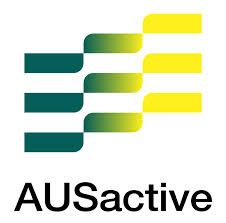Can You Really Make Your Metabolism Better?
4 Tips That Can Help You Boost Your Metabolism
You no doubt hear a lot about metabolism and know it's tied to your weight loss, but do you understand it?
Consider this article as a crash course in metabolism…
We'll sort out what you need to know about metabolism and how to make it work in your favour.
What is metabolism?
Metabolism is the process by which your body breaks down fats, proteins and carbohydrates to produce the energy which fuels the necessary processes you need to survive.
Bottom line: without metabolism, you would die...
Metabolism rate: Can you blame your parents?
Now that we have established everyone has a metabolism, it's time to think about the metabolic rate, where we'll start to see differences from person to person…
Simply put, the rate of your metabolism is the rate at which your body burns the calories that you take in. So the higher your metabolism rate is, the more calories you will burn daily.
People often think that their metabolism rate is rooted in their genetic makeup and is out of their control. Unfortunately, this thinking can lead to a fatalistic attitude that reasons, "I'm overweight because of my genes; therefore, I can't do anything about it."
The truth is that your genetic makeup only accounts for about 5% of your metabolic rate!
Therefore, no matter what your current weight or what genes your parents passed along to you, you are not a prisoner to the rate at which your body burns calories.
The other thing to ask yourself is:
"Are family members (who are) overweight because of their genetics or because they eat like crap and don't exercise?"

How to increase your metabolism
So the million-dollar question is: "Can I increase my metabolic rate?"
And the million-dollar answer is: Yes!
You can ramp up your body's calorie burn. Here are some easy ways to change your metabolism just in time for spring:
1. Hail the Resistance!
Exercise is great for increasing metabolism. But you can't exercise all the time. That's okay; you don't need to! When you use resistance (such as free weights, bodyweight, bands), you create micro-tears in your muscles that require energy to repair. It's called 'afterburn' or EPOC if you want to get a little more technical). It refers to the increase in metabolism that occurs for 24 hours or more after you have had an intense weight or resistance session. It's a great way to keep burning calories long after you have wrapped up the workout! High-intensity interval training formats are one of the best ways to burn calories with the 'afterburn' effect…
2. Drink water.
Such a simple thing to do, but drinking water may help you speed up. The critical thing to focus on with water is getting enough each day. Our body is up to two-thirds water, so it's little wonder that water is crucial to the function and metabolism of our body. We can't survive for more than a few days without it, yet we can last for several weeks without food.
Despite the importance of water, many of us don't drink enough to maintain an adequate level of hydration. Part of the reason for this is that our thirst mechanisms don't tell us that we're thirsty until we're already quite dehydrated.
HOW MUCH WATER?
Several factors can affect how much we need to drink, including body size, climate, and exercise. We lose water through breathing, sweating, urine, and faeces. Exercising also speeds up the rate of water loss. Replenishing the body's fluid balance is vital for overall good health.
A general recommendation is that adults should drink around 2 litres.
If you don't currently drink that much, you could always start by increasing your current intake and work your way up.
Are you already getting around 2 litres consistently?
Calculate your intake around your body weight; you are looking to consume 35ml x kg of bodyweight. So if I am 90kg, it would look like this 35 x 90 divided by 1000 (to work out the litres) which equates to 3.15 litres
Get even more specific
Then it's time to consider variables like gender, age, body weight, activity levels and more. Don't worry there's no more maths:) use this handy hydration calculator! Remember water is CRITICAL, so drink up!
3. Eat breakfast and include protein.
By eating breakfast, you kick start your metabolism for the day. Your metabolism remains sluggish from the time you get up until the first meal of the day (when you begin to digest your meal). If you wait until lunch to have your first food, you will have lost several hours to a slow metabolism. For a smarter breakfast include at least a palm-sized serve of protein. It requires more energy to digest than fats and carbohydrates. The more energy your body expends, the more calories you will burn.
*Note: there is evidence to suggest that delaying breakfast (intermittent fasting) may put your body in a hormonally better fat-burning state. However, more often than not, people (especially women) tend to do best when they have breakfast in the morning. Weight loss studies continue to show this
4. Don't overdo the cardio.
Too much cardio can eat away at muscle tissue, and the less muscle you have, the slower your metabolism. If you choose to do lots of cardio, be sure to mix it into your week in strategic ways like;
Intervals in which you alternate between periods of higher and lower intensity.
Low-intensity cardio like walking your dog.
and if aligned with your goals moderate, long-duration intensity (thinking jogging or cycling for hours)
The takeaway for you is this…
You are not a slave to your metabolism: YOU are in control.
Follow these tips to ramp up your calorie burn and drop those extra kilos!
For more information on exercise in Melbourne, call us today on 0408 077 093
Talk Soon,
Gaz

Hi, I'm Gary Wagner (Coach Gaz).
I help business leaders get out of pain so they can dominate their profession & get all that they want out of life. I guide professionals passionate about achieving new levels of performance. I enable them to forge an effective and resilient physical form that feels unstoppable, enabling and empowering their personal and professional success in Melbourne.
Share this article




